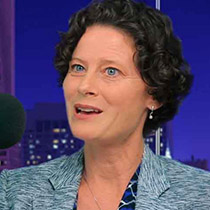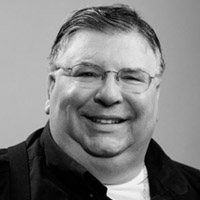Accountability in Four Easy Steps

Source: Partner Insights
The following includes excerpts, reproduced with permission, from an article by Marty Stanley, president of Dynamic Dialog, Inc.
Accountability hasn’t been considered the “next big idea” because it’s not “flashy.” There are no “bragging rights” about implementing an accountability process. After all, accountability means people would need to change, rather than a system or process that needs to change. And who wants to be accountable if it means having to personally change?
On the other hand we’ve seen what happens when there’s no accountability for leading people or processes: The dot-com bust, Enron, Katrina, FEMA…Scandals everywhere: Politics, religion, sports…Bernie Madoff, bailouts and industries collapsing…Product recalls, contaminated foods, greed, waste and excess.
Here are four easy steps to holding people accountable:
- Use job descriptions as the basis for hiring or promoting people into a position.
- Share the job description with incumbents so they know their accountabilities and let them know this will be used for training, coaching, and performance feedback.
- Have objective ways to measure and monitor performance and communicate those methods to the people performing the jobs. Follow through by providing feedback about performance.
- Provide training and coaching opportunities to enhance performance.
Finding Success Through Mutual Commitment | Ken Blanchard
About Ken Blanchard An American author and management expert. His book The One Minute Manager has sold over 13 million copies and has been translated into 37 languages. He has coauthored over 30 other best-selling books, including Raving Fans: A Revolutionary Approach To Customer Service, Leadership and the One Minute Manager: Increasing Effectiveness Through Situational…
The Nonprofit Arena | Sherry Higgs
About Sherry Higgs In February 2010, at age 43, Sherry Higgs was diagnosed with a rare, and potentially life threatening breast cancer called IBC or Inflammatory Breast Cancer. Prior to her diagnosis, Sherry worked for 15 years at a Fortune 500 company as a successful Account Executive. She worked with various sized companies implementing full…
Banking For Life | Chai Patel
About Chai Patel Chaitali Patel was born and raised in India and came over to the United States when she was 17 years old. After working in many of her family’s businesses she ventured out and got a degree in finance and computer science. After her college education she worked at several banks…
ObamaCare – Dennis Wolfe, Healthcare Specialist
About Dennis Wolfe Dennis Wolfe began his insurance career in 1976 and quickly gravitated to the rapidly developing small group benefits market. Almost immediately he wrote the benefit plan for a large interstate restaurant chain. From there he wrote the benefits for a Fortune 500 company. That followed with a total revamping of a…




